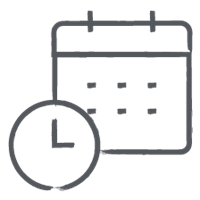 Denmark
Denmark
Mandatory e-invoicing via Bookkeeping Act
Despite momentum around e-invoicing being relatively quiet in Denmark in comparison to other countries, this month there have been some very significant developments concerning e-invoicing in the country.
The Bookkeeping Act is expected to come into force on 1st July 2022, which envisages the digitisation of bookkeeping in Denmark. This means all transactions will need to be recorded in a digital system. All documents relating to these transactions must also be preserved in a digital format.
The requirements will apply to all enterprises subject to the obligation to present financial statements in accordance with the Danish Financial Statements Act.
Implementation of the requirements is expected to follow a phased approach- in line with the following:
- 1 July 2022: The Act is expected to come into force
- 1 January 2023: The Danish Business Authority lays down rules and requirements for bookkeeping systems
- 1 July 2023: Existing suppliers of digital bookkeeping systems must meet the new requirements for digital bookkeeping systems and be registered with the Danish Business Authority
- 1 January 2024: Enterprises covered by the Danish Financial Statements Act’s reporting classes B, C and D must meet the new requirements for digital bookkeeping systems for financial years commencing on or after 1 January 2024
- 1 July 2024: Enterprises covered by the Danish Financial Statements Act’s reporting classes B, C and D and which use their own bookkeeping system that has not been registered with the Danish Business Authority must meet the digital bookkeeping system requirements
- 1 January 2026: Enterprises covered by the Danish Financial Statements Act’s reporting class A and whose revenue exceeds DKK 300,000 must meet the new requirements for digital bookkeeping systems for financial years commencing on or after 1 January 2026
- 1 July 2026: Enterprises covered by the Danish Financial Statements Act’s reporting class A and whose annual revenue exceeds DKK 300,000 for two consecutive years, and which use their own bookkeeping system, must meet the digital bookkeeping system requirements.


